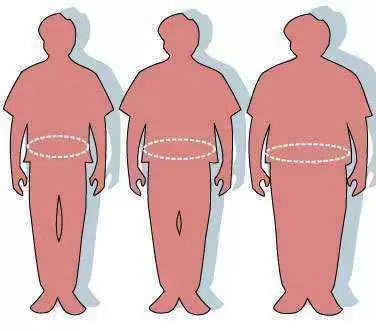Celiac.com 07/10/2006 - Increased consumption of gluten, according to Dr. Michael Marsh, raises the risk of celiac disease symptoms1. Although these symptoms may not indicate celiac disease, they reflect some biological realities. Grain-based foods simply do not offer the nutrients necessary to human health and they damage the human body. USDA and Canada Food Guides notwithstanding, if people eat grain-laden diets, they may develop symptoms of celiac disease (but in most cases, without the diagnostic intestinal lesion). The connection between eating disorders and celiac disease is well known and well documented2,3,4,5. Thus, the dynamics at work in celiac disease may offer insight into the broader realm of obesity, especially among those who are eating the recommended, daily quantities of grain-derived foods, while attempting to keep their weight down by eating low-fat foods.
The primary, defining characteristic of celiac disease is gluten induced damage to the villi in the intestinal lining. Since malabsorption of vitamins and minerals are well known in the context of celiac disease, it should not be surprising that some celiac patients also demonstrate pica (Pica is an ailment characterized by eating dirt, paint, wood, and other non-food substances). Other celiac patients eat excessive quantities of food, coupled with a concurrent failure to gain weight. Yet another, perhaps larger, group of celiac patients refuse to eat (One may wonder if the latter find that eating makes them feel sick so they avoid it).
Celiac.com Sponsor (A12):
Perhaps the most neglected group is that large portion of untreated celiac patients who are obese. Dr. Dickey found that obesity is more common than being underweight among those with untreated celiac disease6. When I ran a Medline search under the terms "obesity" and "celiac disease" 75 citations appeared. A repeated theme in the abstracts and titles was that celiac disease is usually overlooked among obese patients. While obesity in celiac disease may be common, diagnosis appears to be uncommon. Given the facts, I certainly believe that some of the North American epidemic of obesity can be explained by undiagnosed celiac disease. However, that is only a small part of the obesity puzzle, and I suspect that celiac disease may offer a pattern for understanding much of the obesity that is sweeping this continent.
One example, a woman diagnosed by Dr. Joe Murray when he was at the University of Iowa, weighed 388 pounds at diagnosis7. Dr. Murray explained her situation as an over-compensation for her intestinal malabsorption. I want to suggest a two faceted, alternative explanation which may extend to a large and growing segment of the overweight and obese among the general population. As mentioned earlier, anyone consuming enough gluten will demonstrate some symptoms of celiac disease. If large scale gluten consumption damages the intestinal villi—but to a lesser degree than is usually required to diagnose celiac disease—fat absorption will be compromised. Deficiencies in essential fatty acids are a likely consequence.
The natural response to such deficiencies is to crave food despite having absorbed sufficient calories. Even when caloric intake is huge, and excess calories must be stored as body fat, the need to eat continues to be driven by the bodys craving for essential fats. Due to gluten-induced interference with fat absorption, consumption of escalating quantities of food may be necessary for adequate essential fatty acid absorption. To further compound the problem, pancreatic glucagon production will be reduced, compromising the ability of the individual to burn these stored fats, while the cells continue to demand essential fats.
Poor medical advice also contributes to the problem. The mantra of reduced fat continues to echo in the offices of health professionals despite a growing body of converse research findings. In February of this year, the results of a powerful, eight year study of almost 49,000 women showed little difference between the health of women consuming low fat diets when compared to those consuming normal diets8. Alarmingly, this low fat diet seems to have resulted in weight gain, a well recognized risk factor for a variety of diseases.
For some of us, this result was predictable. The likely result of a low-fat diet is an increased intake of carbohydrates while food cravings are fuelled by a deficiency of essential fatty acids. If my sense of the underlying problem (caloric excess combined with essential fatty acid deficiency due to fat malabsorption at the microvilli) is accurate, then a low fat diet is exactly the wrong prescription. Many obese persons are condemned, by such poor medical advice, to a life of ever deepening depression, autoimmune diseases, and increasing obesity.
At the end of the day, when these folks drop dead from heart attacks, strokes, or some similar disaster, the self-righteous bystanders will just know that the problem was a lack of willpower.
I watched my mom steadily gain weight for 35 years. I watched her exercise more will power beyond the capacity of most folks. Still, she could not resist her compulsive eating. I have seen her take something from the freezer and chew on it while agreeing that she had just eaten a very large meal and should feel full.
In December of 1994 I was diagnosed with celiac disease. According to the published experts in this area, my mom should also have been invited for testing. Yet, when asked for testing, her doctor refused her. Through persistence, and a pervasive faith in her son, mom finally (after months of negotiation) swayed her doctor to do the anti-gliadin antibody blood test. Despite the fact that she had been on a reduced gluten diet for the past year, her antibody levels were elevated.
She never sought a biopsy diagnosis, and the EMA and tTG were not available here in Canada at that time. However, she has been gluten-free for the past seven years or so. She dropped a considerable amount of weight.
Her weakness was never will power. She was battling an instinct so basic that few of us could have resisted. That, I think, is the story behind much of North American obesity. The widespread, excessive consumption of gluten at every meal, in addition to the low-fat religion that has been promulgated throughout the land, is resulting in intestinal damage and a widespread deficiency in essential fats is among North Americans.
Ron Hoggan is an author, teacher and diagnosed celiac who lives in Canada. His book "Dangerous Grains" can be ordered at www.celiac.com. Rons Web page is: www.DangerousGrains.com
References:
- Marsh, Michael N. Personal communication. 2002.
- Ferrara, et. al. "Celiac disease and anorexia nervosa" New York State Journal of Medicine 1966; 66(8): 1000-1005.
- Gent & Creamer "Faecal fats, appetite, and weight loss in the celiac syndrome" Lancet 1968; 1(551): 1063-1064.
- Wright, et. al. "Organic diseases mimicking atypical eating disorders" Clinical Pediatrics 1990; 29(6): 325-328.
- Grenet, et. al. "Anorexic forms of celiac syndromes" Annales de Pediatrie 1972; 19(6): 491-497.
- Dickey W, Bodkin S. Prospective study of body mass index in patients with coeliac disease. BMJ. 1998 Nov 7;317(7168):1290.
- Murray, J. Canadian Celiac Association National Conference. 1999.
- Howard BV, Van Horn L, Hsia J, et. al. Low-fat dietary pattern and risk of cardiovascular disease: the Womens Health Initiative Randomized Controlled Dietary Modification Trial. JAMA. 2006 Feb 8;295(6):655-66.




.webp.79fe4ff0953d341e8fcc0a75b227c7ec.webp)




Recommended Comments
Create an account or sign in to comment
You need to be a member in order to leave a comment
Create an account
Sign up for a new account in our community. It's easy!
Register a new accountSign in
Already have an account? Sign in here.
Sign In Now